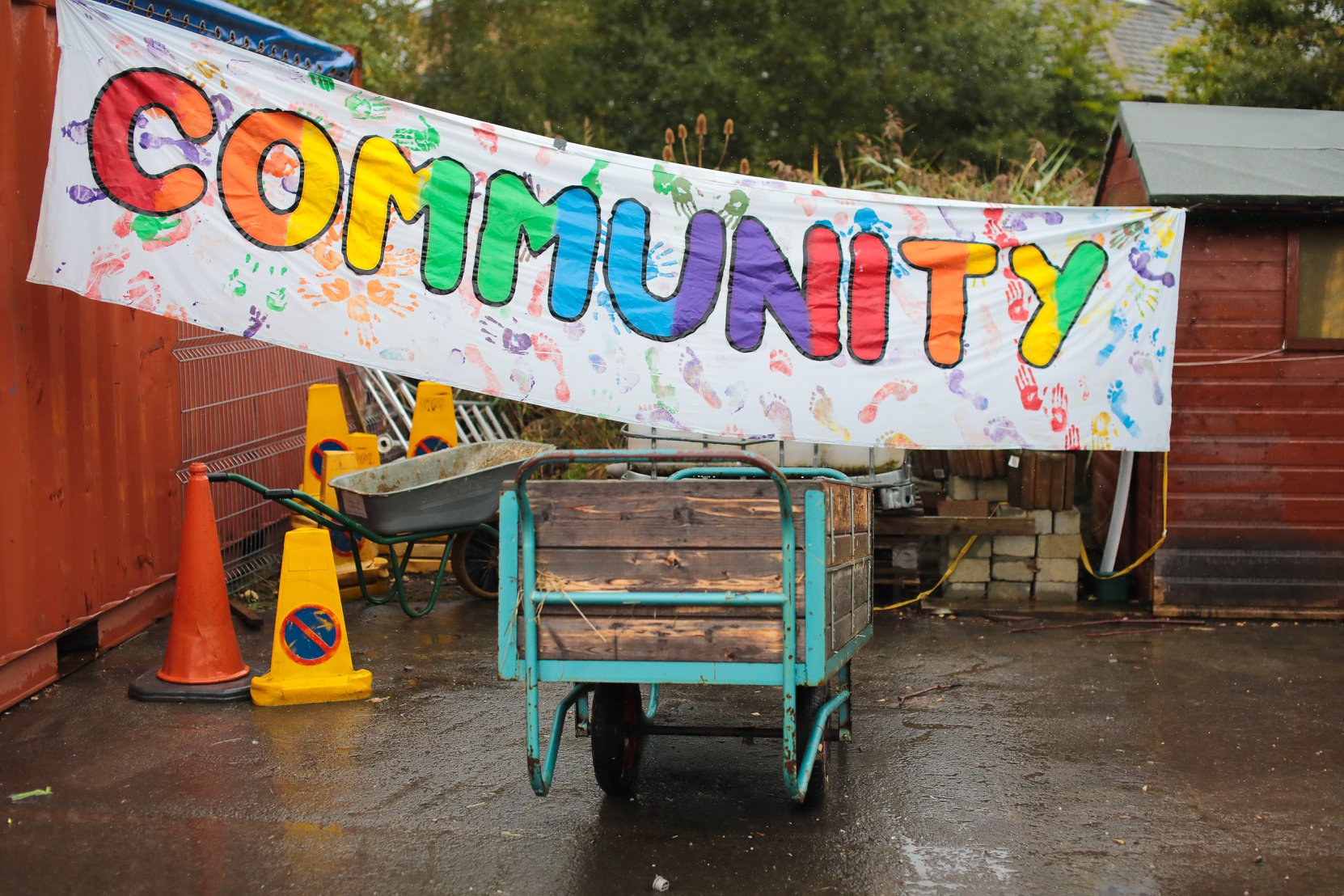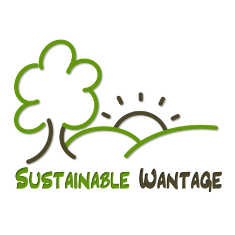Oxford City Farm has a vision of empowered communities learning and working together to produce food locally and live healthy, enriched, and sustainable lives. Volunteers are at the heart of everything they do. The neighbourhoods around the Farm site are very diverse, ethnically, culturally, by age and by income. Some are among the most deprived in Oxford, whilst other areas are relatively affluent. There is limited opportunity for people from different groups to mix. They believe in the great untapped potential of people in the local community to learn from and support each other. Using the farm as a venue, they believe they can improve community cohesion and support people to develop confidence, resilience and skills.
“We know that Covid has caused many people’s worlds to shrink significantly. For those who have been shielding or isolated, coming back out into the world can be a scary prospect. At the Farm we can safely help people to begin to re-establish social connections fundamental to mental health and wellbeing. We know that our volunteering sessions are valued and have positively impacted people’s lives during the pandemic. We are determined to grow this provision and engage with more people as lockdown eases.”
Funding in April 2021 from Oxfordshire County Council, Public Health aimed to improve or maintain mental health and raise awareness of the importance of mental wellbeing for Oxfordshire residents.
The NHS and the charity MIND have adopted the evidence based ‘5 steps to mental wellbeing’ that contribute to improving an individual’s mental health and wellbeing:
- connecting with other people
- being physically active
- learning new skills
- giving to others and
- paying attention to the present moment
Grants were awarded based on evidence of these 5 steps and / or the enablers identified in the Oxfordshire Mental Health Prevention Framework 2020-2023. Public Health were also keen to award grants to communities in need and encouraged partnership working.
Oxford City Farm used the 5 ways to wellbeing as a framework for their Community Farming volunteer sessions to enable:
- Connection – their sessions are facilitated in a way that enables people to work together and share experiences that help people feel part of something meaningful
- Being active – they ensure that there are opportunities for people of all fitness and ability levels to be involved in the work of the farm – from gentle weeding to caring for animals or constructing a greenhouse, participation is possible for all.
- Learning new skills – many of their volunteers come to learn more about food growing that is in harmony with nature, all bring a wealth of life experience. Exchange of ideas and skills is actively encouraged.
- Helping others – one of the key reasons people tell us they feel so good about volunteering at the farm is that their work, while benefitting them is also of benefit to others. It feels good to feed the local community.
- Taking notice – being in nature observing the changes that come with seasons, listening to birdsong, or the sheep munching, or chickens scratching, is fertile territory for taking time out from habitual worries or preoccupations.
A £14,768 grant from Public Health allowed 800 people to take part in their Community Farming volunteer sessions. It also supported 2 larger scale community events, their Squash Fest in October (attracted almost 1000 visitors) and a wassailing event in January that engaged over 200 people. All staff received Mental Health First Aid training and collaborated in this with other local organisations creating strong links across potential referral/partner organisations. They have engaged a highly skilled well connected local consultant to work with staff to support outreach into their diverse local communities.
A theme of resilience in the pandemic has come over repeatedly for OCF and is the focus of our longer-term support to the local voluntary and community sector. Improved mental wellbeing across our communities is vital to allow us to ‘recover stronger’. By partnering with Oxfordshire County Council, Public Health we were able to direct a round of funding to the huge variety of organisations in the local community supporting this.
This funding allowed Oxford City Farm to regularly open their beautiful green community space for volunteers and visitors.The volunteering creates a community feel – people connect over tea and biscuits and feel good about what they achieve as a group. For many, these outdoor opportunities for connection have been the only social space they have felt safe to enter and as such it has been a real life line for their well-being. Volunteers get to take home fresh vegetables, they have had a part in growing, and they also feel pride in doing their bit to support the increased availability to fresh food for people who would otherwise struggle to access it.
For people who don’t want to get involved in the physical work of the farm, the drop in visitor sessions have been hugely popular with families enjoying a free to enter community space that their children can roam, scramble and play in, meet friends and enjoy the animals. So many people tell us the the farm is like an oasis in the city and when they walk through the gates their shoulders drop. The combination of being in a natural green space, the chance to interact with animals and the land and receiving a warm welcome from staff and volunteers really seems add up to so much more than a sum of its parts.
Volunteers have told Oxford City Farm that coming to a space where connection with nature and people is possible in a supported way, has a hugely beneficial impact on their well-being. One example is a man in his early 30’s who was referred to their project. When he first came he was isolated, withdrawn depressed and anxious; but not receiving specialist help. He Initially worked on his own projects and didn’t interact with the group. However with support from the session leads, he gradually gained confidence. He began to sit with the group at tea break, not interacting much, but his presence was significant. As time went by he gained confidence, began to work alongside others and to speak and share his knowledge and skills, particularly in relation to carpentry. From coming once per week, he requested to come more often. He noticed jobs that needed doing around the Farm and offered to do them.
He now feels a real sense of pride and connection with the Farm. He calls it his happy place. This is so evident in his demeanour, as he walks in tall and open, rather than the hunched and unsure person he was when he started. He has now done his volunteer co-lead training and is able to support the delivery of sessions and activities on the site. The other regular volunteers, many of them older, or less physically able value his strength and willingness to support them in heavier tasks and he loves to help. He now actively welcomes new volunteers and has helped the kickstart trainees develop carpentry skills. This project has been a journey of transformation for him and it is hoped will lead to future paid work with the Farm.














